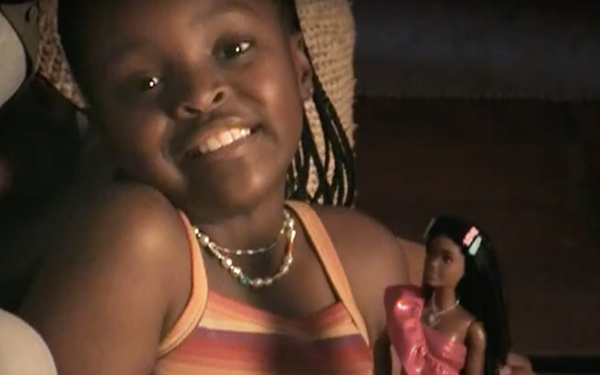
Ad for
Mattel's Barbie brand
New research from Collage Group finds that Gen Z parents are struggling in many ways, including the best approaches for teaching kids tolerance
as they navigate an increasingly diverse world.
Whether it’s how to talk about their own cultural heritage or gender differences, young parents are often uncertain about how to start
these lessons. That unease creates an opportunity for brands to help, says Natalie Griffith, director of cultural insights at Collage. “Little sparks of information can help parents have those
conversations,” she says. “Parenting is so hard today, especially given the pressures of social media. There’s this pressure, like 'there are so many things I should be
doing,’” she tells Marketing Daily. “Marketers should ask themselves what tools they can provide to help.”
advertisement
advertisement
Based on 4,000 Gen Z, millennials, Gen X and boomer
respondents, the study finds that 78% of parents say raising kids is more challenging than they thought it would be. More than any other group, Gen Z says they feel most pressured to get everything
right at 54%.
Regarding things they believe they can control, raising children in a digital age and staying afloat financially are the top concerns, each named by 51% of parents.
When
asked to name the things beyond their control that scare them the most, gun violence comes in first, at 46%, followed by youth mental health, at 43%.
Parents want to equip kids with skills to
succeed in a diverse world, with 60% saying they either have or plan to teach kids about racism before kids turn 10, 54% about their cultural heritage and 44% about other cultures.
Gender is
also important, with 46% saying they prioritize lessons (and 59% of LGBTQ respondents.)
Black, Asian and female respondents tended to be most likely to teach about various differences.
Conversely, fathers, white, and older respondents were less likely to do so.
Parents want their kids to be proud of their own cultural heritage and to have broader cultural awareness with
an understanding of other practices, too, like holidays and foods from cultures other than their own.
“We were also surprised that so many parents -- more than 60%--– said that
they were most open to in-person resources, like museums and festivals,” says Griffith, who specializes in parents, kids and generations. “That could be a good place for brands to play and
amplify cultural teachings.”
She says the data also made an impressive case for the role of fathers. “Dads have this strong desire to be the culture keepers and to want to teach
their children about heritage, family history and their own culture.”